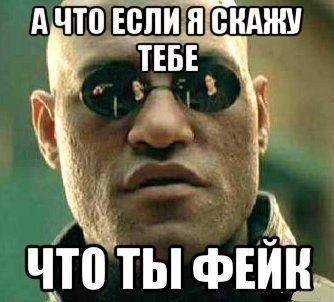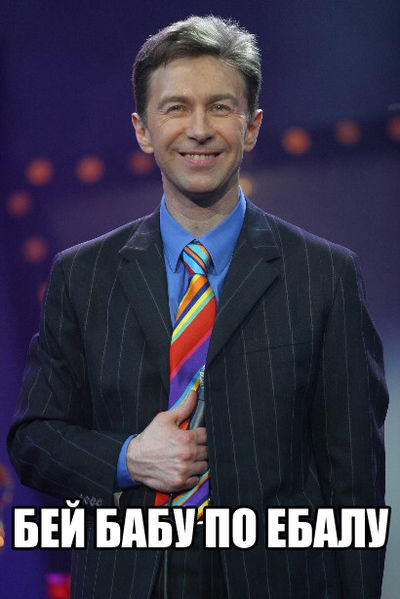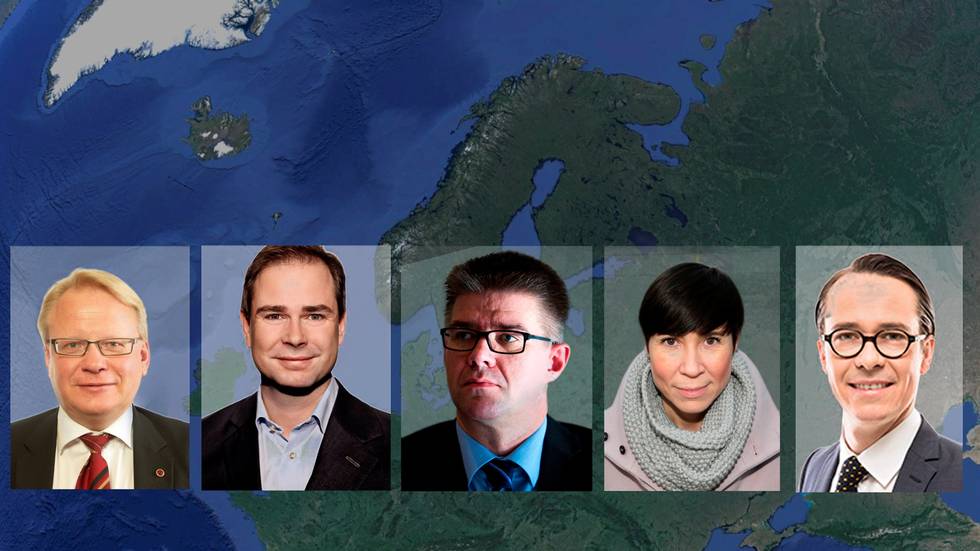Welcome to our column, Russia Update, where we will be closely following day-to-day developments in Russia, including the Russian government’s foreign and domestic policies.
The previous issue is here.
UPDATES BELOW
Russia This Week:
– What Happened to the Slow-Moving Coup?
– Can We Be Satisfied With the Theory That Kadyrov Killed Nemtsov?
– All The Strange Things Happening in Moscow
– Remembering Boris Nemtsov, Insider and Outsider (1959-2015)
Special features:
– Alexey Navalny On the Murder of Boris Nemtsov
–Theories about Possible Perpetrators of the Murder of Boris Nemtsov
–Novaya Gazeta Releases Sensational Kremlin Memo: ‘It is Seen as Correct to Initiate Annexation of Eastern Regions of Ukraine to Russia’
Please help The Interpreter to continue providing this valuable information service by making a donation towards our costsâ€.
the banning of Russian memes by Roskomnadzor, the Russian
communications oversight agency which functions as a state censor.
Roskomnadzor, the Russian state censor issued a clarification of policy via its account on the popular social network VKontakte that it would consider the following acts to be “violation of the law on personal data regarding public figures” (translated by The Interpreter)
– creation and use of fake accounts in the name of a public person (with name, patronymic and last name, position, birth date, photo and so on) and its use (posts, commentary)
– creation of fake sites of a public person devoted to professional and civic activity of the public figure
– use of the photo of the public person to personify a popular Internet meme which has no relationship to the celebrity personality
As an example, Roskomnadzor used the meme made from the character Morpheus in The Matrix, played by Laurence Fishburne, with the line “What if I told you…you were fake.”

The state censors’ new policy appeared to be directly related to a complaint from a popular singer Valery Syutkin, who sued a Russian Internet culture site similar to Encyclopedia Dramatica, called Lurkomorye, for an image they hosted depicting Syutkin with a vulgar expression taken from a refrain from a song by the Russian band Nambavan which has spawned many amateur Russian-language knock-offs showing men beating women.

The name “Lurkomorye” is a play on the English Internet slang reprimand “lurk more” and the Russian word lukomorye, known to every Russian from the famous Pushkin fairy tale Ruslan and Ludmila, whose first line is U lukomorya dub zelyoniy (“There is a green oak by the cove”) about a learned cat on a golden chain who goes round and round the tree.
On many of their pages, Lukomorye like to juxtapose the purity implied by traditional Russian cultural icons with their opposite, which is why Syutkin, a Frank Sinatra-style romantic singer was selected — he is like the equivalent of Rick Astley of “rickrolling” fame.
But the meme in question is more vulgar than the Washington Post has translated it; it means “beat the bitch in the f**kface”.
Lukomorye has had a number of its pages blocked and the entire site may be blocked eventually because it is a repeat offender.
Interestingly, the Post article doesn’t mention that the page explaining the “beat” meme in question is about the justification of wife-beating in Russian culture, citing quotes from the Russian classics by Leo Tolsoy, Mikhail Lermontov, Maxim Gorky as well as modern film dialogue to explain why the “beat” line should be allowed.
Lukomorye cites the Domostroi, the 16th century Russian code of household rules which instructs a husband to beat his wife regularly, and warns that the husband who does not beat his wife is “not building his home” and “cares not about his soul” and will “perish.” The Domostroi advises the husband to beat his wife, “not with emotions or anger but for prevention” and to make sure there are no witnesses and only punish her for “major offenses”.
Numerous movie lines are quoted from both Russian and foreign modern films to indicate the normalization of beating women. Russian politicians are also cited, such as Vladimir Zhirinovsky, who has become infamous for his shocking remarks, including a call for women journalists to be raped after they asked him a question. Lukomorye notes how Cossacks beat the members of Pussy Riot during the Sochi Olympics when they staged a protest.
While a page like this would be permitted under the First Amendment, if posted on Twitter, the sexist and violent nature of the meme may well be condemned by liberal media, and a transgressor might find themselves out of a job once a site like Gawker got done with them — as has happened in a number of cases of “bro humor” in the US.
Another meme of Syutkin’s published by Lukomorye shows him in a knock-off of the famous Obama campaign posture – a “blasphemy” which the Post didn’t mention and which we’re not sure that Roskomnadzor would remove, as many such anti-Obama memes have been allowed on Russian social media and promoted by pro-Kremlin propaganda accounts.

— Catherine A. Fitzpatrick
Yesterday we reported that the Russian film-maker brothers Andrei Konchalovsky and Nikita Mikhalkov were going to go into the fast-fund business and were seeking a reported $1.25 billion in government loans.
But now Andrei Konchalovsky has denied he has applied loans yet in an interview with Business FM.
He said while he has had the idea of a fast-food chain that would compete with American companies, he didn’t yet have the financing in place.
Kochalovsky described his idea as follows:
The idea is simple: honest food. I am a fanatic in general about healthy nutrition. This doesn’t mean vegetarian food, it just means healthy food without additatives. My main thought was to try to make a chain, hopefully a large one, a federal one, cheap but healthy food. But naturally we don’t intend to sink anyone. Combating McDonald’s is the same thing as combating Hollywood.
He said he had managed to discuss the idea with Putin literally on the move, as the president was getting into his car. He said Putin appreciated the idea. So Konchalovsky then ordered a business plan to be drawn up from a consulting agency but also wrote a letter to the president, which he publicized, in which he indicated that the president had approved the plan.
Now the plan is being discussed “at the level of the government,” said Konchalovsky and the proposal was reviewed at a meeting on small and medium business and support programs, in which business owners find their own investment for 30% of their budget and then 70% of start-up costs are obtained from bank loans.
But Konchalovsky said his project did not yet have a concrete investor, although he planned to go to Sberbank, VTB and VEB banks and Rosselkhozbank.
— Catherine A. Fitzpatrick
The Economist writes:
Last year’s revolution in Ukraine and Russia’s aggressive reaction to it have jangled nerves in Minsk and inspired a partial strategic rethink. Mr Lukashenko, a long-serving if unreliable ally of Vladimir Putin, condemned Russia’s annexation of Crimea and did not join its embargo on EU agricultural exports. Having hosted two rounds of peace talks in Minsk, he now urges America to get involved in Ukraine and has even offered the services of Belarusian peacekeepers.
But the article is also filled with caution about this development:
Mr Lukashenko, an autocrat of the oldest school, has not suddenly changed his spots. He is playing the same old game: balancing one giant neighbour (the EU) against the other (Russia). Indeed, a second lesson he has drawn from Ukraine’s tragedy cuts against the first: tread carefully to avoid provoking the bear. Along with Armenia and Kazakhstan, Belarus has joined Russia’s Eurasian Economic Union, which bills itself as a rival to the EU (although officials in Minsk downplay Mr Putin’s ambition for a currency union). Belarus’s command economy stays afloat on the back of vast energy subsidies from Russia, and polls show that Belarusians prefer integration with Russia over Europe.
— James Miller
This agency joins a number of other federal and regional government agencies laying off workers as well as private firms.
Deputy Mayor Maksim Liksutov said that it was a “forced measure” and that they would try to “optimize” their work and invite “very experienced, knowledgeable specialists” to work at the department. But the load will be greater on existing specialists with less positions filled, he acknowledged.
Earlier, Mayor Sergei Sobyanin announced that 3,000 city bureaucrats would be let go, out of a total of 20,000.
The defense industry’s Rostec is laying off 40,000 workers.
As we reported, Aeroflot announced it would dismiss 10% of its staff. Foreign car manufacturers including GM, Citroen, Peugot and others are laying off workers and halting production. This has already caused labor unrest with some workers picketing and striking, which has been met by crackdowns from the Investigative Committee.
— Catherine A. Fitzpatrick
NATO has announced that it will shrink the size of the Russian delegation to NATO from 50 to 30, and it appears that concerns about Russian espionage are the primary motivator for doing so. New York Times reports:
NATO, publicly citing an administrative effort to limit the size of delegations from “partner nations” like Russia, has capped them at 30 members.
But Western officials said the move also followed a confidential assessment by the alliance’s Civilian Intelligence Committee that intelligence agents had been part of Russia’s delegation.
No one is shocked that spies might be in Russia’s delegation, and shrinking its size would hardly eliminate the risk of espionage, said the Western officials, who asked not to be identified talking about intelligence issues. But they said it could make the problem easier to manage.
Still, the Russian delegation has four members who are able to travel through NATO headquarters without an escort:
Five ministers of Nordic countries have signed an op-ed piece in Norway’s Aftenposten yesterday, April 9, opposing Russian propaganda and attempts to split allies.
“Russian aggression against Ukraine and the illegal annexation of the Crimea is a violation of international law and other international agreements,” say the ministers.

Photo by Ane Hem (photomontage)
The authors are Peter Hultqvist, Defense Minister of Sweden; Nicolai Wammen, Defense Minister of Denmark; Gunnar Bragi Sveinsson, Foreign Minister of Iceland; Ine Eriksen Soreide, Defense Minister of Norway; and Carl Haglund, Defense Minister of Finland.
The ministers called Russian action “the biggest challenge to the European security situation” faced now and say the “security situation in the neighboring Nordic countries has noticeably deteriorated over the past year” due to Russian action.
While stability still prevails, they say “we must be prepared for emergencies or events may occur.” It is “no longer business as usual, and now we have a new normal state to relate to.” The ministers write regarding the Kremlin (Google translation):
They have shown that they are ready to use military means to achieve their political goals, even when it involves violations of principles of international law.
We note that there are increasing Russian military exercises and intelligence activities in the Baltic region and northern areas. The Russian defense acts challenge our borders, and there have been several border incidents encountered by countries on the Baltic Sea. Particularly disturbing is the fact that Russian military aircraft have behaved in a manner that has been a direct danger to the civilian air traffic.
Russia helps to sow discord between the countries.
The ministers said “Russian exercises and intelligence activities in our area are increasing” and that “Russian propaganda and political maneuvering” were trying to split the NATO and the EU. They said it was Russia’s responsibility “to reverse this negative trend.”
The statement is interesting because some of the countries are members of NATO and/or the EU, and some are not, yet they are determined to cooperate in the face of the Russian threat:
The Nordic countries face this situation with solidarity and closer cooperation. Nordic cooperation rests on shared values and a willingness to deal with the challenges together.
Given differences in organizational affiliation, we cooperate closely within the framework of NATO and the EU. We have a defensive base. We will strengthen stability in northern Europe, and deplore threats and use of military force.
Norway, Denmark and Iceland are members of NATO; Finland and Sweden are not. Denmark, Finland, and Sweden are members of the EU; Norway and Iceland are not.
The ministers said they had decided at the March 10th Nordic Defense ministerial meeting in Arvidsjaur to improve monitoring of sea and air, and share information to increase warning times and “reduce the risk of surprises and misunderstanding.”
They will also have joint military training operations and cross-border training. They will continue to exchange information and experience about cyber attacks. The countries are also exploring the possibility of having overflights of the Nordic countries called “Northern Flag.”
They also said they will begin capacity-building and reform in the defense sector in cooperation with the Baltic countries.
Revisions, modernization and simplification of the Nordic industrial agreement has been ongoing for some time. We have now signed the agreement, which is an important milestone. The agreement provides a framework for provisions on supply and special measures that are primarily relevant as preparations before and in severe emergencies and war, provisions for certain simplifications and adjustments of industrial cooperation and provisions for possible simplifications within trade defense between the parties.
In addition to the Nordic defense cooperation we strengthen the national capacity to handle incidents and threats in the respective countries through bilateral cooperation. Bilateral cooperation complements and reinforces the Nordic cooperation as a whole and security in our part of the world.
As we reported, the Nordic countries have dealt with a number of provocations in recent months, from a foreign submarine, believed to be Russian, which violated Swedish waters to numerous incidents where Russian planes have buzzed right next to the air space of European countries. In December, a Norwegian fighter plane nearly collided mid-air with a Russian MiG.
— Catherine A. Fitzpatrick
The Wall Street Journal reports that Russian troops are holding military drills in the breakaway region of Transdniestria, a region of Moldova sandwiched between Ukraine and the River Dniester. The region was occupied by Russian troops, who were supposed to serve as peacekeepers, after a post-Soviet civil war. But Russian troops were supposed to redeploy more than a decade ago — and they haven’t.
The Journal writes:
According to Russian news agencies, 400 Russian troops participated in exercises in Transnistria, a breakaway territory of Moldova populated by ethnic Russians. They fired 100,000 rounds of ammunition…
Thursday’s military exercises are intended to create the impression Mr. Putin might take more drastic action to subdue the defiant country. It would be nice to suppose that the West’s response to such action would be tougher than what it has so far been in Ukraine. We aren’t counting on it.
Russia has also held military drills for some of its most sophisticated fighter jets in the eastern region of Primorsky. Business Insider reports:
The Russian military mobilized more than 30 fighter jets, including its Sukhoi Su-35, as part of flight training conducted over its far eastern Primorsky Territory, state-controlled media said Thursday. Russia has conducted countless military drills in recent months amid rising tension with Western nations and the NATO military alliance.
The Su-35 “supermaneuverable multirole fighter” was the most advanced of three variations of Russian fighters that participated in the exercises, the Defense Ministry said. The Russian military used Su-25 fighters to stand in for enemy forces in simulated aerial combat. The training involves about 500 personnel and is to run through Saturday.
Google is already storing its data
in Russia data centers including some that belong to Rostelekom, and has
“dozens” of racks in Russian data centers, RBC.ru reported, citing multiple government and industry sources who made the claims after attending a meeting on compliance with Russia’s new Internet law.
Google was widely reported as
closing down its development office in December 2014, a move that
prompted some press to say they were “pulling out of Russia” and that
this was even “in protest” against the crackdown on the Internet, exemplified by the new Russian Internet law that requires Internet service providers to keep data on Russian soil.
But if the RBC.ru report is accurate, it looks like things are more complicated. Google said last year that it would retain some services in Russia.
Google
began discussions about transferring data in late March at a meeting
with the Minister of Communications devoted to preparation for the law
to go in effect in September, says RBC.ru.
Three
participants in the meeting — companies that own data processing
centers (DPCs) — and a source close to the government — told RBC.ru
about this meeting.
Aleksey Sokolov and Rashid Ismailov, deputy
communications ministers, and Alexey Degtyarev president of the
Association of DPC Industry Members and also owners and directors of
major Russian data centers attended this meeting. Dmitry Marinichev, the
Internet ombudsman, was the organizer of the meeting.
RBC.ru obtained
a transcript of the meeting according to which one of the participants
reported that Google is storing information at his company’s data
center.
“The company Google is [now] our client. We have a secure semi-government enterprise,” he said.
According
to this source, “Google wasn’t letting anybody touch their racks” and
only Google’s own employees, who came from abroad, were able to handle
the servers.
Another one of those who attended the meeting says
that an official from Rostelekom made this statement. Ilya Khala,
general director of 3Data data center who also took part in the meeting
confirmed this information. Andrei Polyakov, a representative of
Rostelekom, said that the company can give out its clients’ names only
with their consent.
Google representative Svetlana Anurova said that the company is not commenting on the subject of the storage of personal data.
Under
the law passed in July 2014, companies who handle personal data of
Internet users must store it on servers on Russian soil, where
Roskomnadzor, the state communications oversight agency which functions
as a censor will be responsible for “oversight and surveillance of the
processing of personal data including placing its violations in a
special register.”
All ISPs in Russia are required to make data accessible to the Federal Security Service (FSB) or other law-enforcers on demand.
Companies
are still uncertain how broadly the concept of “personal data” will be
defined, what can be protected, whether a copy can be kept abroad and so
on. Roskomnadzor says it will have about a dozen “explanatory” meetings
with representatives of different industries.
Anton Platonov,
general director of the company StoreData said Google began to conclude
agreements to place its equipment in Russia more than a year ago, RBC.ru
reports.
“In October 2014, Google had just installed about 40
racks which took up half a room at the data center,” said another
participant in the meeting. He also said that Google was the client of
several commercial data centers in Russia, including TrastInfo. Now
Google was renting the whole room and is talking about renting another
room at TrastInfo, he said. Yelena Boglovskaya, press secretary at
TrastInfo, refused to comment on the story.
According to Khala,
server rentals depend on parameters and configuration but can be up to
6,000 rubles a month ($115). The data processing centers in the 3Data
network contain 15-60 racks, and in each rack there are 30-40 servers. So
to rent 40 racks would require more than 7 million rubles
($134,960).
But since Google has all its own equipment, it might
only need to rent the space and not the racks, another participant
noted. So that might run to $2,000 a month per rack, taking into account
electricity, cooling and other services. None of the participants could
estimate what the capacity of the servers were.
Earlier we
reported that eBay and PayPal had agreed to move their customer data on
to Russian soil. Other companies that have made the move are Tourmaline
Labs and Ugo who are renting virtual servers “in the cloud” — but a
cloud that is in Russia.
One Ministry of Communications officials
told RBC.ru that the law on data storage in Russia was written by
deputies of the State Duma, and the ministry was not involved in it,
therefore its “formulas are not ideal.”
Yet neither this ministry or the Internet industry in Russia were able to stop the law.
Alec Luhn explained in the Nation last year that the Russian law was directly in response to the revelations of Edward Snowden.
Even
before Snowden, Russian intelligence had extensive access to user
communications through the program SORM, and the Kremlin had a vision of
a “sovereign Internet” that they could create to get the advantages of
connectivity but introduce state control to rid themselves of the
disadvantages that undermined authoritarian control.
Soon after
Snowden’s arrival in Moscow, Senator Ruslan Gattarov, who at that time
headed the Working Commission to Investigate the Facts of Surveillance of
Russians by US Intelligence Services, created in response to Snowden’s
revelations, summoned Google to his commission and implied that the company had now become more compliant by “changing its position” to be “more constructive.”
Gattarov
met with Carlo D’Azaro Biondo, President of Southern & Eastern
Europe, Middle East and Africa Operations at Google, Inc. on July 25.
Google is ready for “constructive cooperation,” said Biondo.
So far from retreating from Moscow, Google is renting space evidently to store user data.
Last year, Bloomberg treated the Google’s announcement that it was closing it engineering department as a protest:
There is no reference to the data storage law in the official statement,
which instead stresses Google’s commitment to its Russian users and
points out that the company’s commercial office in Moscow isn’t closing.
Yet this clearly is another case of a tech giant not wanting to deal
with the personal data law or any other present and future government
efforts to control the Internet. Google had relocated engineers from the
Nordic countries when personal data protection laws were passed there,
and those rules are much softer than the Russian ones (Sweden’s,
for example, allow the transfer of data within the European Union and
to some countries outside it that meet European security requirements.)
Google made such a decision with China just to keep its presence
there in that huge market, but eventually it it left when it was
discovered how hackers from the government had accessed its servers.
Google itself has not had any comment on its negotiations with the Russian Federation.
— Catherine A. Fitzpatrick